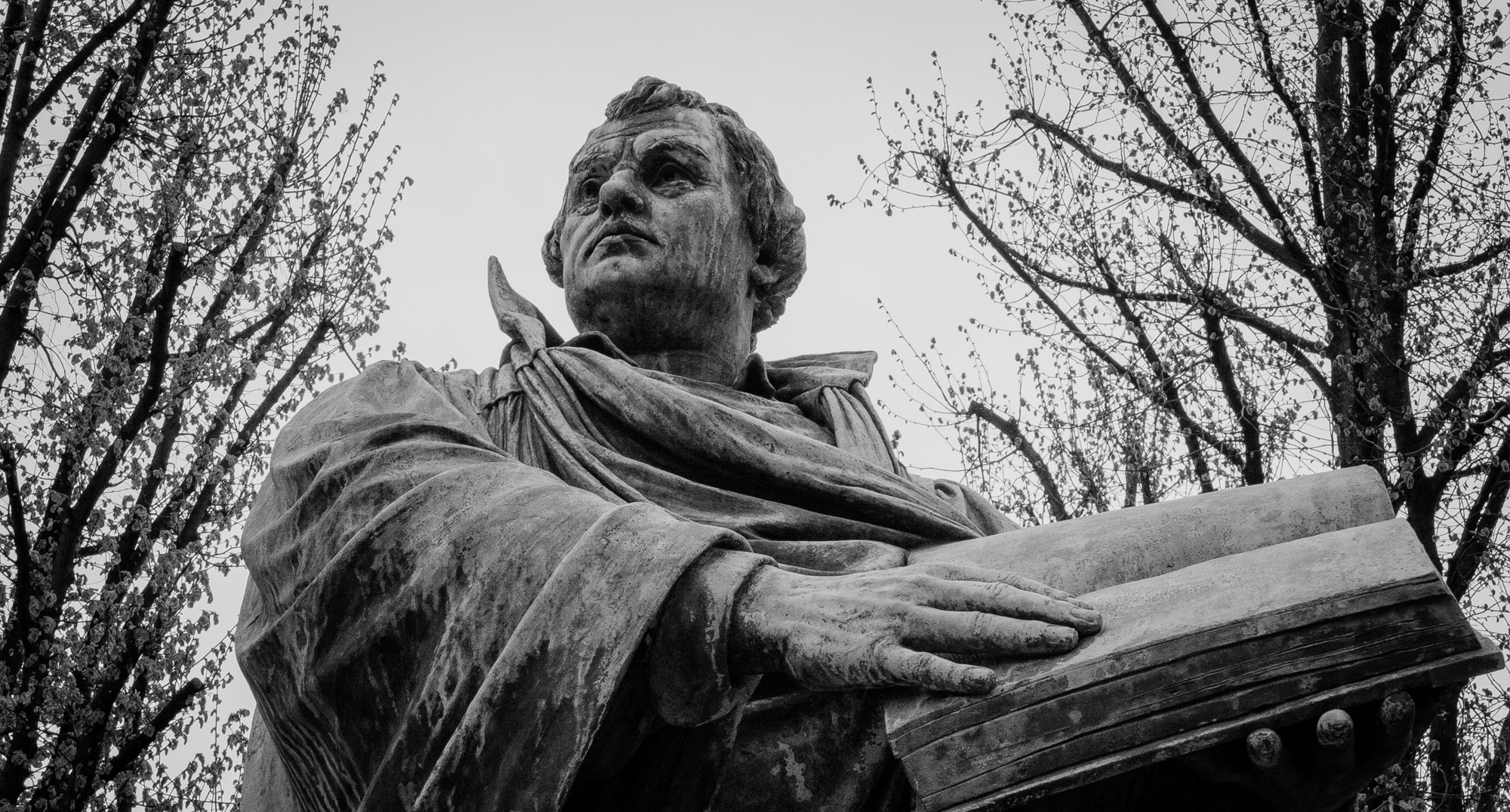LEAH FARISH|GUEST
It was Reformation Sunday 2017 in Wittenberg, Germany, where Martin Luther nailed his 95 theses to the Castle Church door 500 years before. Our rather staid gathering of Presbyterians and others observing the anniversary was interrupted by wind howling at the windows. The gale was so fierce that a state of emergency was declared in Berlin. This wasn’t the jolly gusts that had puffed at our backs as we had explored the charming village the day before. These winds, roaring down the cobbled streets, ripped up banners and sent chairs clattering away from their biergartens. Local costumed re-enactors gathered their wool capes, and hunkered down. Something bigger than even their towering hero was blowing through their town.
I realized that what swept through Germany in 1517 was not a movement of institutional reform, or nationalistic zeal, but a wind of spiritual revival. How could it not be, when many common folk were starting to hear the Word of God in their own language, and not Latin shrouded in incense? The Bible was opened to Europe and their hearts were filled like sails.
At the conference of World Reformed Fellowship, we celebrated this, and more importantly, we discussed the global impact of the Reformation today.
German philosopher Thomas Schirrmacher told us that Paul is the example of a radical violent fundamentalist who stopped targeting infidels when Christ confronted him with his sin and saved him from hatred and blame. Sola gratia, only grace, could reform a persecutor. African bishop Dr. Mwaya Kitavi called it grace alone that delivered a shaman (his mother) from her bondage to demonic devices.
Ron Man, a worship leader from Memphis, Tennessee, described how the Reformation inspired Europe to participatory worship and that only by faith (sola fide) we see Christ leading His brothers and sisters (Psalm 22) in worship of the Father. From the book of Hebrews, Ron beautifully portrayed the ministry of Jesus Christ as ongoing—not just in saving us with His blood, but singing with us in our praises and exalting our Father in our prayers. And Michael Oh, Executive Chair of the Lausanne Movement, exhorted that we must exercise our faith or else “the devil prowls around, seeking whom he may devour.” He reminded us that even the stalwart Martin Luther was visited late one night beyond candle’s reach by such a menacing apparition that Luther threw his inkpot at the thing.
Canadian theologian D. A. Carson pointed to the excellent instruction of Deut. 17 that rulers copy out by hand the Law of God. Sola Scriptura—only God’s Word— deserves this laborious work, and the attention of any government leader. How much heartache in Israel, he said, could have been averted if this had been obeyed. Dr. Stephen Tong, a firebrand pastor and evangelist from Indonesia, related how many thousands in the Far East are becoming excited about Bible study. (World magazine reports that among educated people in China, “Reformation theology” is the hot new thing.)
Only Christ (Solus Christus) is worthy of our worship. Sam Logan, Associate International Director of World Reformed Fellowship, came from South Africa to remind us of this. (And I felt it deeply as I observed the culture in Berlin and Leipzig, so empty and dark where no worship of Christ was being offered.)
Our voices from Holland, Indonesia, and Brazil joining in praise said, soli Deo Gloria—to God alone be all glory! So did the renditions of “Ein feste burg” (A Mighty Fortress) that we heard from the pipe organ at St. Mary’s (where Luther’s six children were baptized), an Indonesian bamboo chime (anklung) chorus, and a Korean choir—urged along with their native drum.
The Reformation swept through the Western world and brought education for women, vastly improved civil rights, and a demand for personal integrity. But every generation must continue to discover Scriptures and measure itself by their standards. In other words, every believer must carry on her private Reformation.
One way I like to do this is by choosing a word or a concept that will guide me each year. Rather than resolving to do or not do a certain thing as a “resolution,” I like to find a focus. I prayerfully consider something that would challenge me and lead me closer to Christ. I have chosen a variety of things through the years: one year, the gospel of Luke—reading it, meditating on it, all year. Another year, I took a theme of encouragement. Yet another, I memorized the book of 1 Peter. For this year, it’s a focus on the principle of purity. Jesus said, “Blessed are the pure in heart, for they shall see God.” I don’t know where the search for purity will lead me, and I am a little uncomfortable about what it might show me about my thought life and my entertainment choices, but I want Reformation in my life. Blow, wind! Blow!
About the Author:
Leah Farish
Leah Farish teaches college courses on law, language, and public speaking in Oklahoma. She also heads a nonprofit which encourages volunteerism. Leah and her husband are members of Christ Presbyterian in Tulsa, where, being party animals, they are also preparing to celebrate the church’s 50th birthday.

